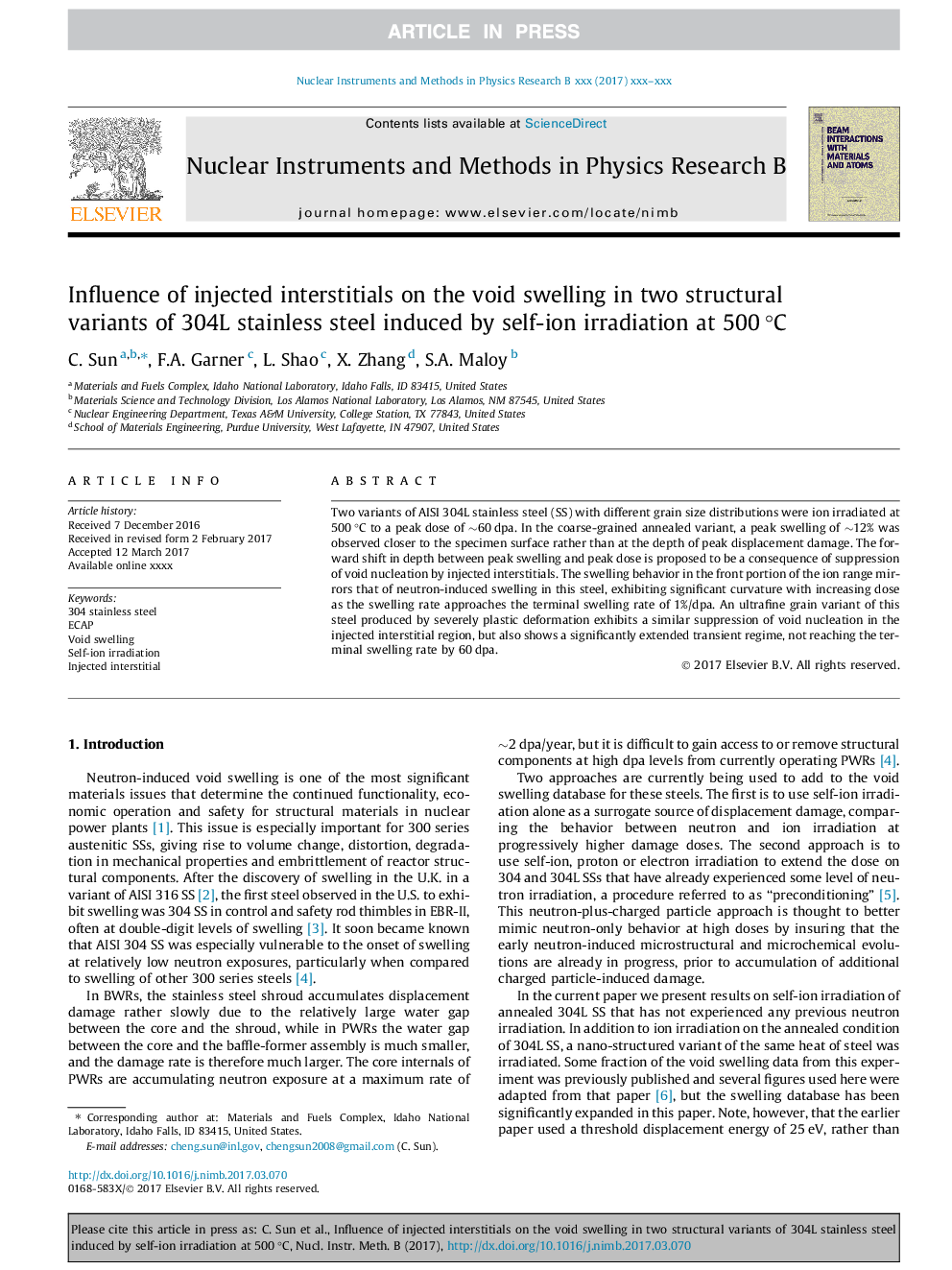| Article ID | Journal | Published Year | Pages | File Type |
|---|---|---|---|---|
| 5467277 | Nuclear Instruments and Methods in Physics Research Section B: Beam Interactions with Materials and Atoms | 2017 | 5 Pages |
Abstract
Two variants of AISI 304L stainless steel (SS) with different grain size distributions were ion irradiated at 500 °C to a peak dose of â¼60 dpa. In the coarse-grained annealed variant, a peak swelling of â¼12% was observed closer to the specimen surface rather than at the depth of peak displacement damage. The forward shift in depth between peak swelling and peak dose is proposed to be a consequence of suppression of void nucleation by injected interstitials. The swelling behavior in the front portion of the ion range mirrors that of neutron-induced swelling in this steel, exhibiting significant curvature with increasing dose as the swelling rate approaches the terminal swelling rate of 1%/dpa. An ultrafine grain variant of this steel produced by severely plastic deformation exhibits a similar suppression of void nucleation in the injected interstitial region, but also shows a significantly extended transient regime, not reaching the terminal swelling rate by 60 dpa.
Related Topics
Physical Sciences and Engineering
Materials Science
Surfaces, Coatings and Films
Authors
C. Sun, F.A. Garner, L. Shao, X. Zhang, S.A. Maloy,
